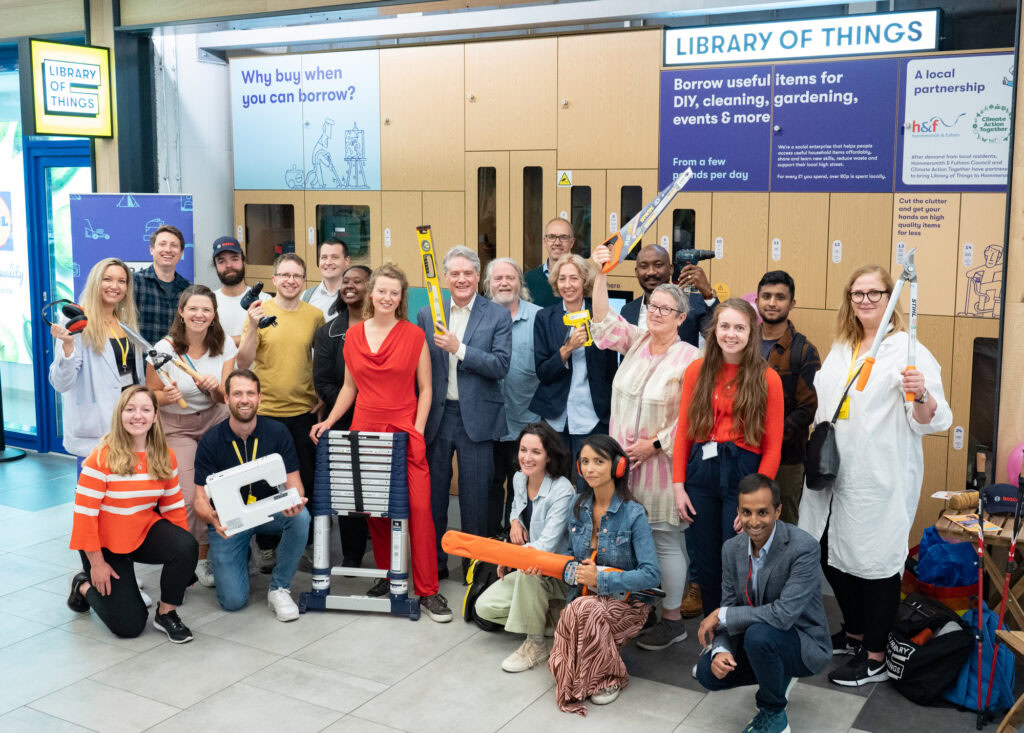I think we can all play our part as consumers to combat what is one of the fastest growing streams in household waste by reusing and recycling our unwanted clothes, but without the help of the entire industry supply chain we will never be able to achieve lasting change.
Clothing has a significant social and environmental footprint, which is made worse by the huge amounts we consume. The impacts on the environment alone include the depletion of precious resources like water and fossil fuels, and there is high energy use, waste and the production of green house gas emissions involved in the manufacture of clothing. In 2006 alone the UK clothing and textiles sector produced over 3 million tonnes of CO2 and 70 million tonnes of waste water.

Lord Phil Hunt is Minister for Sustainable Development and Energy Innovation at Defra. He previously served as a Minister in the Department for Work and Pensions and the Department of Health. Lord Hunt has also been appointed Minister of State at the Department of Energy and Climate Change.
Without industry help and expertise it would never be possible to achieve change, and this itself could also present potential incentives for business: environmental protection and economic prosperity can go hand in hand. Nearly two years ago we started the process of drawing up the Sustainable Clothing Action Plan, an initiative aimed at improving the sustainability of clothing across the lifecycle of clothes. I am pleased to say the Department for Environment, Food and Rural Affairs (Defra) has co-ordinated this process, and so far more than 300 organisations have taken part. Working together our goal is to move sustainable clothing further into the mainstream, so that it becomes readily available on the high street.
Several UK reuse and recycling organisations have committed to actions under the Plan to compliment this project. For example the Association of Charity Shops, Oxfam, Salvation Army Trading, the Textile Recycling Association, Recyclatex and clothing recyclers to name just a few, are all taking a range of actions to increase clothing reuse and recycling beyond the existing 16 percent recovery rate. These include: increasing consumer awareness, bonded collection schemes for charity shops, increasing collection and recovery infrastructure, and a focus on school and corporate uniforms.
From a market perspective, the clothing reuse and recovery sector provides jobs and income both in the UK and overseas, for charities and recyclers. It's also a potential source of revenue for local authorities. In addition, increasing the amount of clothing that's recycled to produce new products or even raw materials could ultimately reduce the amount of waste that's produced and so cut down on harmful greenhouse gas emissions.
Leading companies can see the potential opportunities for manufacture, retail and reuse/recycling in this expanding market. For example, Nike has developed its Considered Design product range, which combines innovative design with sustainable materials and processes. Marks & Spencer, Sainsbury's and Tesco are taking a range of actions including increasing the Fair Trade and Organic ranges they stock and in store take back and recovery. Continental Clothing, Adili and T Shirt & Sons are sharing the business and environmental benefits of organic textiles, printing processes and carbon foot-printing to increase awareness.
Government and the public sector are also doing our bit to expand the market for sustainable clothing. In the meantime, the Action Plan incorporates a project by the government funded Centre for Reuse and Remanufacture that focuses on increasing corporate clothing. Sustainable consumption and production is one of Defra's strategic priorities, and we are working on similar roadmaps for ten other products to help consumers make choices about what they buy.
If sustainable clothing is to become a high street regular, we must build on the success of what has been achieved so far. The next step is to put this Action Plan into practice. The challenge for industry leaders is to take this process forward and secure the place of sustainable fashion in the high street. In Government we will continue to support this through the Roadmap process.
To find out more visit the Defra website.








Subscribe for free